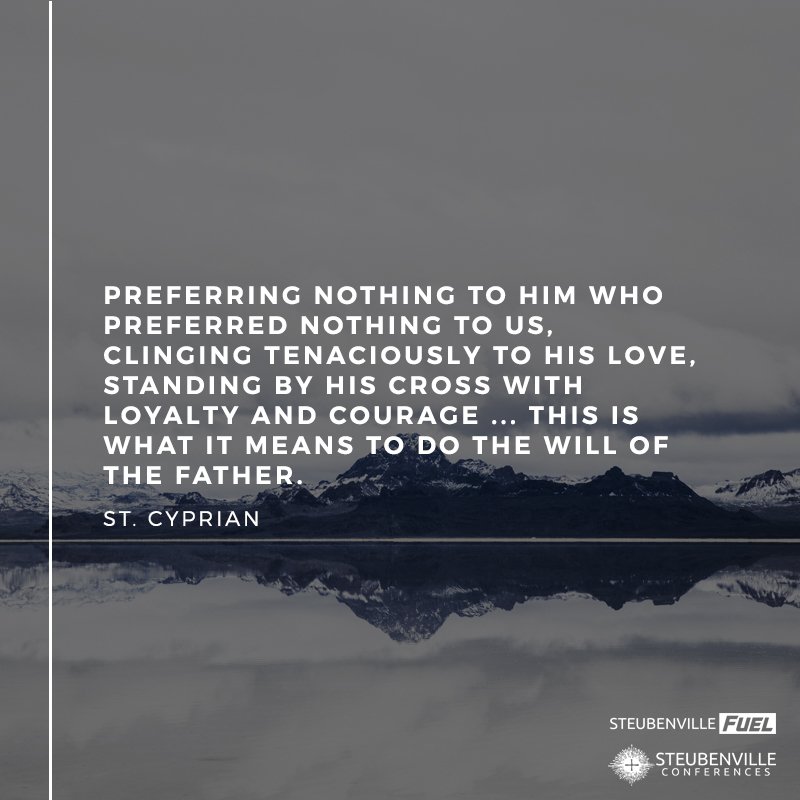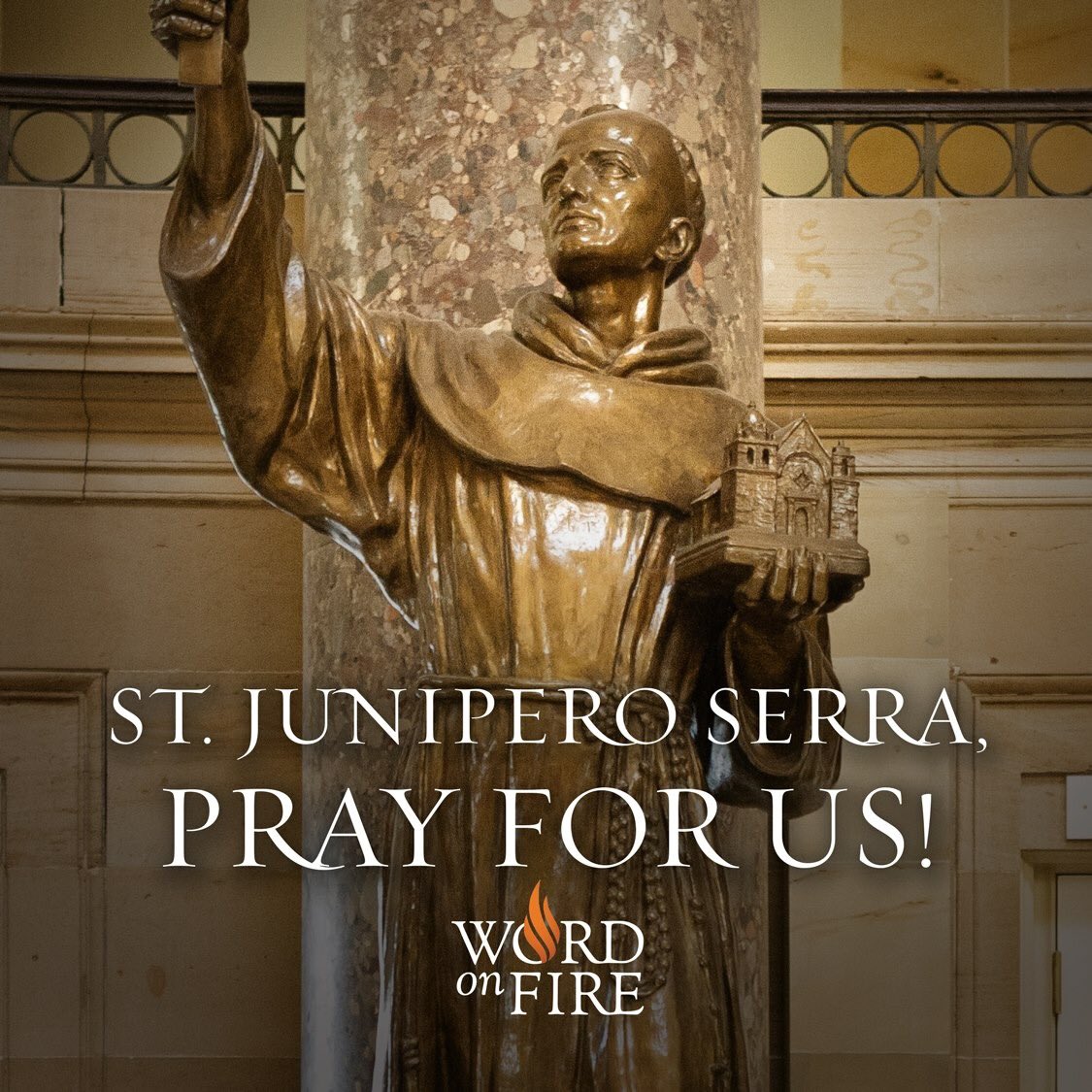1.
Stained glass of St Thomas Aquinas from St Vincent Ferrer's, NYC https://t.co/TPMwunq1Xv
— Fr Lawrence Lew OP (@LawrenceOP) January 28, 2015
2. From Pope Benedict XVI in 2010:
In short, Thomas Aquinas showed that a natural harmony exists between Christian faith and reason. And this was the great achievement of Thomas who, at that time of clashes between two cultures that time when it seemed that faith would have to give in to reason showed that they go hand in hand, that insofar as reason appeared incompatible with faith it was not reason, and so what appeared to be faith was not faith, since it was in opposition to true rationality; thus he created a new synthesis which formed the culture of the centuries to come.
B16 also noted:
Thomas had an exquisitely Eucharistic soul. The most beautiful hymns that the Liturgy of the Church sings to celebrate the mystery of the Real Presence of the Body and Blood of the Lord in the Eucharist are attributed to his faith and his theological wisdom.
And:
One of his former pupils declared that a vast multitude of students took Thomas’ courses, so many that the halls could barely accommodate them; and this student added, making a personal comment, that “listening to him brought him deep happiness”.
When I re-read old audiences of Pope Benedict on holy men and women, I give thanks for what a treasure he has been in the life of the Church.
Do read on to the end; the last two paragraphs, in particular.
3. On adoring Christ with the help of Thomas Aquinas.
4. The Crux Angelica of St. Thomas.
5. From a homily:
as St Thomas said in his inaugural lecture as a university professor in Paris, Christ alone is the Teacher, the source of all wisdom, and all true teachers of theology, of ‘sacra doctrina’, must have first received instruction from him. They have to prayerfully and humbly contemplate him who is Truth before handing on the fruit of their contemplation. Hence, it is fitting that after Mass on this day, we too pause and contemplate the Eucharist exposed on our Altar.
When we celebrate Thomas Aquinas as a saint, we’re not celebrating a genius – we’re not praising his cleverness as such. It’s easy to forget this. Rather, we thank God for our brother, a friar preacher who was, first of all, a lover of God, a contemplative of divine wisdom; a humble servant of truth who faithfully handed on to us what God first taught him. May he pray for us, and may we continue to be inspired by St Thomas’ life, follow his example, and be enlightened by his teaching.
He hungered for God’s word and believed it, because he knew that nothing could be a firm foundation for life. It was because of that faith he was able to do so much.
6. His hymns. And the Summa (read it in a year?).
7. Fr. Romanus Cessario, O.P., writes:
The legacy of Aquinas to world culture flows like a winding river through many different terrains, while its waters pick up sediments from the different geological formations that form its bed. During its more than seven-hundred-year history, Thomism has influenced nearly every field of human learning, and Thomists have found themselves geographically dispersed, albeit unevenly, throughout the whole world.
8.
"May any joy without You be burdensome for me and may I not desire anything else
besides You."
-St. Thomas Aquinas
— Maria VickroyPeralta (@MVickroyPeralta) January 28, 2015
9. Fr. Barron on his gratitude for Aquinas and Thomas’s importance for us today:
10. Via ibreviary.com, from Aquinas:
the passion of Christ completely suffices to fashion our lives. Whoever wishes to live perfectly should do nothing but disdain what Christ disdained on the cross and desire what he desired, for the cross exemplifies every virtue.
11. From the Frank Sheed collection Saints Are Not Sad:
Our popular press almost takes for granted that nothing is to be known for certain, by means of the intelligence, of God, of the soul, of right and wrong; that in some vague way religion won’t bear thinking about too closely; that history, and scientific research are, no one quite knows how, yet in their very nature, hostile to religion.
The book was published in 1949, but could have easily been written today, needless to say. Fr. C. C. Martindale S.J, wrote:
I suppose nowhere in the world — no, not in Aristotle himself — will you find such ruthless distinction between speculation and proof, hypothetical and demonstration, such relentless logic as in St. Thomas, such laborious accumulation of all available fact, such shifting and reshifting and assessment of evidence, such absolute freedom from the scientific or philosophic fashion of the moment – for science has fads and fashions, slogans and cant-phrases too.
Aquinas, Fr. C. C. Martindale, S.J., said:
made a new gift to the world, which has assisted human thought ever since and could assist in the present moment far more even than it does, were it better used. The great Greek thinker Aristotle had reached our thirteenth century in small fragments only of his works, ill-translated, and mostly by way of Arab and Jewish authors, who had made current very distorted versions of Aristotle’s meaning, so much so, that the very name of that philosopher was suspected and disliked. St. Thomas, practically singlehandedly, turned the whole of this situation once and for all upside down. He caused, with the help of the Holy See, a complete and proper translation to be made; he explained the whole system of Aristotle more perfectly than ever yet it had been set forth; and he displayed that, far from being of necessity, or at all, hostile to the Christian Faith, the tremendous treasures of antiquity could be brought into glad and free cooperation with the teachings of Christ. This in itself is an enormous benefit, because it can preserve religion from the miasma of sentimentalism that infects so much of it today. Do not imagine it is easy to think properly. It is far harder than learning about airplanes, or hunting, or making films. It is an art. And, it is very tiring. People seize every chance of not thinking, and end by half arguing you ought not to think, anyway in religion, but just to feel or be what they dub “mystical.”
Today one might add, “spiritual” — the fashion of the day encouraging us to be “spiritual” not religious. But as Pope Francis has emphasized, we cannot know Christ without His Church, the very Body of Christ.
Thomas Aquinas is not only a great gift to scholarship and world debates about faith and reason. He had come to know God, and this was this humble priest’s treasure. Fr. Martindale concludes:
This man of many travels, of intimate understanding of his fellow man, was, through his love for Jesus Christ, in such close touch with God, that all life, let alone all knowledge, had become for him a means of a holiest Communion.
He is a saint — a model not just for thinking, but also for living — for philosophers and non-philosophers alike.
St. Thomas Aquinas, pray for us!
12.
“The things we love tell us what we are.” –St. Thomas Aquinas #feastday
— Steubenville (@go2steubenville) January 28, 2015











